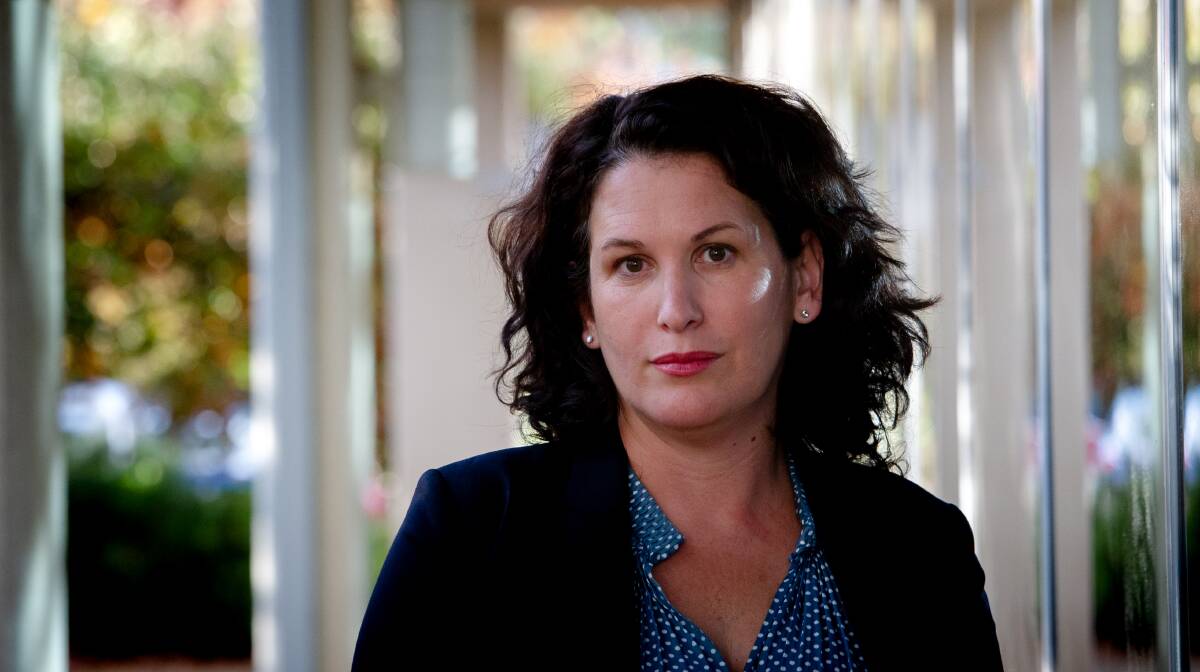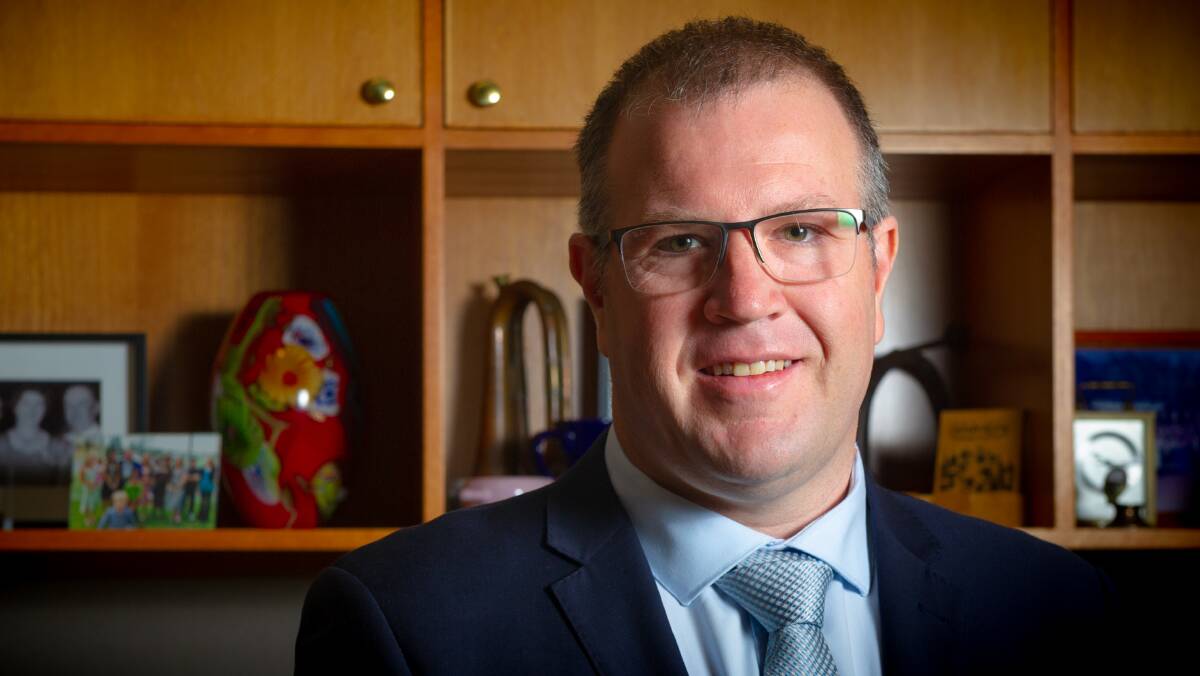
Working from home is emerging as a potential flashpoint in the public service's next round of negotiations between staff and employers on workplace conditions.
Subscribe now for unlimited access.
or signup to continue reading
New survey results show women in the Australian Public Service identified access to working from home arrangements as the issue they most wanted the main public sector union to focus on over the next year.
The Community and Public Sector Union, which conducted the What Women Want survey, flagged working from home would be a critical issue in bargaining as employees pushed to have it protected in enterprise agreements.
However the union said the federal government's bargaining restrictions, which prevent overall improvements in conditions, could make it harder to protect the right to work from home in workplace deals.
The public service commission, which oversees the APS, said agencies had used flexibility within existing agreements to implement remote working policies.
"Agencies and employees have not needed to wait to bargain a new agreement to implement these arrangements," a commission spokesperson said.
"Flexibility, including the ability to work from home, continues to be available to APS employees in line with operational requirements of their employing agency."
CPSU national secretary Melissa Donnelly said after many gained access to working from home arrangements as a result of the pandemic, women in the APS now wanted to see the right to work from home protected in legally enforceable enterprise agreements.
"The Morrison government's bargaining policy is making that much harder," Ms Donnelly said.
The federal government would need to change its bargaining policy, and scrap the "no enhancements" rule, to allow protections for working from home in workplace deals, she said.
A growing push for protections
Ms Donnelly said access to working from home was a major factor in keeping women in the APS from seeking employment elsewhere, but the public service risked falling behind other industries.
More than 80 per cent of the survey's 3500 respondents said working from home in normal work hours was important or very important, up from 66 per cent in 2019.
Eighty per cent of women said their employer had been more supportive of working from home arrangements. However, aside from pandemic restrictions, only a third of respondents said they had regular work from home arrangements.
Access to work from home arrangements (26 per cent) emerged as the most important issue for respondents, ahead of pay increases (20 per cent) and flexible working hours (14 per cent) in the latest survey.
It is likely that hybrid working will become embedded in the APS through HR policies, not enterprise agreements.
- Associate Professor Sue Williamson
Only two in five women said their agency actively supported the use of flexible work arrangements.
"In a once-in-a-century pandemic, it is not surprising to find that access to working from home arrangements was the issue that most women wanted the CPSU to focus on over the next twelve months," the union report said.
"Flexible working arrangements and the pressures of trying to achieve work-life balance remain as key issues, but a desire to maintain at least some working from home arrangements was the dominant concern."
Public Service Minister Ben Morton said the federal government had always looked forward to working from home arrangements resulting from COVID being a thing of the past, while also responding as needed to changing public health circumstances.
"We will see a greater use of flexible work arrangements into the future as agreed by employers, based on discussions between employers and employees on the productivity benefits of these arrangements," he said.

UNSW Canberra public sector workplace expert Sue Williamson said caps on time spent working from home, and regulation of work from home arrangements, may make the issue contentious during bargaining.
The CPSU wanted the caps removed, and would push for working from home to be included in enterprise agreements. Public service agencies had implemented caps, and the government had long wanted workplace deals to be as streamlined as possible, she said.
"The 'no-enhancements' rule is likely to mean that agencies will not want to negotiate working from home clauses," Associate Professor Williamson said.
"This is an issue which the government will likely prefer to keep in human resource policy, to enable flexibility and be subject to negotiations between an employee and their manager."
READ MORE:
APS agencies were aware hybrid working - combining working from home and the office - was important to employees, and were considering what the future of work would look like, she said.
"It is likely that hybrid working will become embedded in the APS through HR policies, not enterprise agreements."
The CPSU survey also found women were acting for prolonged periods of time in roles with higher duties, were working in four or more consecutive contracts in non-ongoing roles, and that many worked longer hours without compensation.
APS rated poorly on handling of sexual harassment
The report found attitudes towards the public service's handling of sexual harassment complaints had changed significantly since 2019.
Only 30 per cent of women agreed that complaints regarding sexual harassment were dealt with quickly and appropriately, down from 38 per cent.
An increased proportion of women disagreed that there was adequate training on sexual harassment, that complaints regarding sexual harassment were dealt with quickly and that management placed importance on eliminating sexual harassment.
Mr Morton said the APS Code of Conduct provided clear guidance to ensure the public service was a safe place to work, and required employees to treat co-workers with respect and courtesy.
APS employees were protected under public service, workplace, safety and sex discrimination legislation, and agencies had HR policies to foster respectful and safe workplaces, and provided appropriate mechanisms to report bullying and harassment, and receive support, he said.
The public service commission released its gender equality strategy last year to reinforce its commitment to gender equality and provide guidance to ensure the APS was a safe and respectful workplace, Mr Morton said.
"All workplaces have a role to play, but the APS should be an exemplar," he said.
Ms Donnelly said workplace sexual harassment was an increasing concern for women in the APS.
"Dissatisfaction with sexual harassment complaint processes, training and management's approach are at an all time high," she said.
"Only a quarter of women who experienced workplace sexual harassment reported it and of those only one in ten were satisfied with the response they received.
"It is clear that the Morrison government and APS agencies must do much more to address workplace sexual harassment."
The CPSU survey showed satisfaction with pay declined from 59 per cent in 2019 to 56 per cent last year.
Ms Donnelly said the CPSU would focus on removing the federal government's cap on pay rises, which is tied to the wage price index.
The percentage of women going to work while sick fell, however survey results showed working from home arrangements had led to many still working while sick because they were not in the office. Staff in casual roles, or who were in labour hire or contractor roles, reported working while sick because they had inadequate sick leave.
Nearly half of women in non-ongoing, labour hire or contractor roles had consecutive contracts. A third of women being employed under consecutive contracts had four or more.
A third of women who were acting in higher duties had been doing so for more than a year, the survey found.


